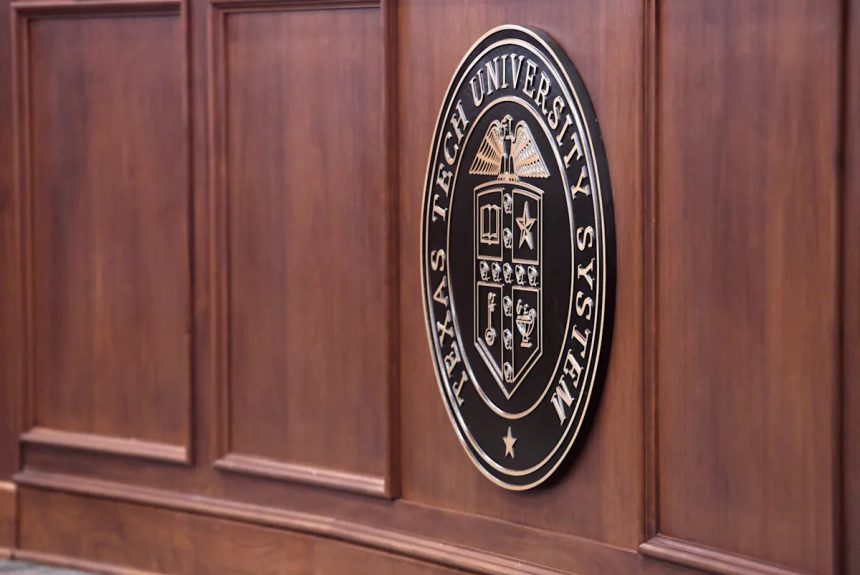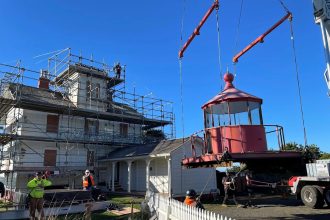A $3.7 billion budget and a path for the Texas Tech University System’s flagship and namesake school to achieve Association of American Universities status were chief among items passed and heard by TTU System regents.
On Thursday and Friday, the TTU System Board of Regents convened in Lubbock for a regularly scheduled meeting to hear items and presentations from the system’s leadership and each component institution, and approve some items.
Others are reading: Who could be next chancellor of Texas Tech University System? A list of potential candidates
While all items on the regents’ agenda passed with unanimous support, there were a few that stuck out. Here’s what you need to know.
Regents adopt new faculty amendments, freedom of expression policies
The regents adopted polices that stem from recently passed laws from the Texas Legislature.
The first was to create a new TTU System regulation concerning establishing faculty senates — TTU System Regulation 07.20. This new policy would govern each of the university’s policies of the faculty senate.
This stems from the passage of Texas Senate Bill 37, which lets Texas university system boards of regents authority to determine if the univeristy can have a faculty senate. If a board decides to allow one, the component university presidents get to pick the “presiding officer, associate presiding officer, and secretary” from the faculty senate members and determine how the body conducts its meetings.
The board also has the power to determine whether the faculty senate can have more than 60 members.
Texas Tech University board of regents swears in new members, Thursday, May 4, 2023, at the Texas Tech University System Admin Building.
The guidelines for creating the new TTU System regulation are unclear, as they have not been posted to the system’s website as of 2:30 p.m. on Aug. 15.
Regents also amended TTU System Regulation 07.04, which deals with Freedom of Expression on university campuses, to comply with S.B. 2972. The new law limits how, when, where and who can demonstrate on college campuses.
It also includes revoked provisions in the 2019 bill that established all common outdoor spaces on a public campus as traditional public forums, giving the determination of what is and isn’t a public forum to the university leaders.
The changes to this system regulation have not been made readily available as it will not go into effect until Sept. 1, 2025. All motions passed with unanimous support.
Regents approve a $3.7 billion systemwide budget for 2026
TTU System CFO James Mauldin presented the regents with a condensed version of all of the university and the system budgets for fiscal year 2026.
Here’s how the combined $3.7 billion budget breaks down by university, and the change from 2025:
-
Texas Tech University — $1.79 billion (a $476 million increase).
-
Angelo State University — $174 million (a $12.2 million increase).
-
Midwestern State University — $132 million (a $5 million increase).
-
TTU Health Sciences Center — $1.08 billion (a $122 million increase).
-
TTUHSC El Paso — $512 million (a $54.5 million increase).
-
TTU System — $40.4 million (a $4.47 million increase).
A large chunk of the budget revenue is coming from two sources — $926.8 million from gifts, grants, and contracts and $812.6 million from state appropriations. Together these two sources comprise 46.7% of the budget revenue.
Others are reading: Texas Tech regents pull tuition agenda item after Gov. Abbott ‘prohibits’ tuition increases
On the other hand, the two most significant expenses for the universities are $1.45 billion for employee salaries and $1.5 billion for other maintenance and operations, both of which account for 79.4% of the budget.

Texas Tech University’s Cody Campbell attends the board of regents meeting, Thursday, May 4, 2023, at the Texas Tech University System Admin Building.
BOR Chairman Cody Campbell commended Mauldin and the regents for working diligently with the component institutions in crafting the budgets this year.
“Each of the regents individually and separately met with James (Mauldin) and with each of the constituent institutions went over the budgets in great detail,” Campbell said. “Just so everyone knows, $3.7 billion – we’re not just throwing it around.”
Texas Tech sets clear path to achieving AAU membership
Texas Tech President Lawrence Schovanec presented his path to help Texas Tech achieve membership in a highly sought-after group of leading research universities in the United States and Canada — the Association of American Universities.
If achieved, TTU would be among the ranks of Johns Hopkins, Harvard, Yale, and other institutions in being a leader in academic research in the nation.
Previous Reporting: Texas Tech president shares plans for future enrollment, research and eyes AAU
“It’s more than a distinction,” Schovanec said. “It represents the activity that goes along with those types of schools — the number of federal dollars they receive, the opportunities it brings, the partnerships and so on.”
The AAU uses the following categories to determine if a university can join its 71 members:
-
Federal research expenditures over a 10-year average.
-
Faculty awards, fellowships and memberships.
-
Citations over a 10-year average.
-
USDA, state and industrial research funding over a 10-year average.
-
PhDs granted over a 10-year average.
-
Postdoctoral appointees over a 10-year average.
Schovanec said TTU has excelled in all of the areas except one.
“The area we must improve in is federal research expenditures,” Schovanec said. “Now, that’s very doable.”
He noted that some schools in the AAU have federal research expenditures significantly higher than TTU’s current level — $63 million in 2024 — prompting the university to develop a plan to reach this goal.
That includes hiring new faculty to grow the university’s research strength, increasing faculty retention, enhancing resources for students and faculty, and improving the university’s facilities to support more research.
Others are reading: Proposals to change Tech layout include more green space, moving facilities
Overall, Schovanec said there is a plan in place to grow that $63 million to more than $200 million by 2035, along with the other metrics the university will be evaluated on.
“We have the momentum. We have a plan. This is the time to do it,” Schovanec said. “Tech belongs among the most elite schools.”
Mateo Rosiles is the Government & Public Policy reporter for the Lubbock Avalanche-Journal. Got a news tip for him? Email him: mrosiles@lubbockonline.com.
This article originally appeared on Lubbock Avalanche-Journal: TTU System regents hear Texas Tech AAU plan, OK $3.7 billion budget









